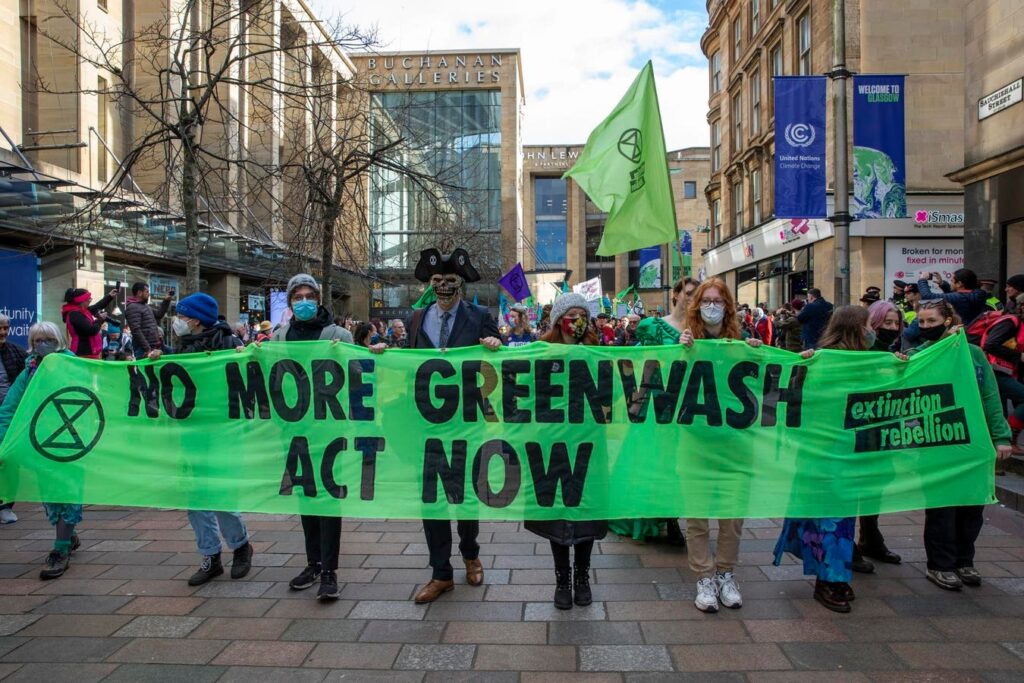On June 18, the Council of the European Union announced that it has adopted its position on the Green Claims Directive. The new directive is part of a wider strategy under the European Green Deal that aims to curb greenwashing and help consumers make greener choices. The adopted Council position gives an important preview of what the final directive will include, but expect changes as negotiations begin.
As global concerns rise over the impacts of climate change, there has been a significant increase in consumer interest in supporting businesses that are environmentally friendly. This rise in consumer interest, as well as pressures from financial investors and other parties, have pushed businesses to take climate friendly stances. However, there is a growing, and reasonable, concern that businesses are exaggerating their environmentally friendly actions in what is known as greenwashing.
Traditionally, greenwashing was done through marketing. When the customer base wanted environmentally friendly companies, companies benefited by making themselves appear greener. In recent years, the phrase climate washing has developed as a subset of greenwashing that directly addresses the exaggeration of claims relating to climate change and greenhouse gas emissions. For decades, greenwashing frustrated environmental activists who wanted actual change by companies. However, as environmental, social, and governance investing grew, so did the legal pitfalls of greenwashing. Shifting from just clever marketing campaigns to misleading investors and violating consumer protection laws.
There has been a general lack of regulation of greenwashing. However, as the Paris Agreement drives other climate related regulations, legal development in the area of greenwashing has increased as well. This is most notable in the EU, where a package of anti-greenwashing directives have been working their way through the legislative process.
In February, the EU adopted the Directive on Empowering Consumers for the Green Transition, legislation that specifically targeted green and climate related claims. The Directive banned generic environmental claims “without recognised excellent environmental performance which is relevant to the claim.” Examples of problematic language in the legislation are “‘environmentally friendly’, ‘eco-friendly’, ‘green’, ‘nature’s friend’, ‘ecological’, ‘environmentally correct’, ‘climate friendly’, ‘gentle on the environment’, ‘carbon friendly’, ‘energy efficient’, ‘biodegradable’, ‘biobased’ or similar statements that suggest or create the impression of excellent environmental performance.”
The Green Claims Directive is designed to work alongside the Empowering Consumers Directive “by addressing specific aspects and requirements for explicit environmental claims, which are environmental claims made in written form or orally, and environmental labelling schemes and the corresponding environmental labels as regards their substantiation, communication and verification.”
The Directive targets explicit environmental claims that are either written or oral and environmental labels that companies use voluntarily in their marketing. The goal is to make environmental claims “clear and easy to understand” by the consumer.
The Council position of the Green Claims Directive states: “If environmental claims are not reliable, comparable and verifiable, consumers and other market actors cannot fully leverage their purchasing decisions to reward better environmental performance.” The new directive will impact other climate initiatives “by enabling consumers to take informed purchasing decisions, and will help create a level-playing field for market operators making such explicit environmental claims and displaying such environmental labels”
“It would be misleading to consumers if an explicit environmental claim or environmental label pointed to the benefits in terms of environmental impacts or environmental aspects while omitting that the achievement of those benefits leads to negative trade-offs on other environmental impacts or environmental aspects.”
Notably, the Directive takes aim at carbon offsetting, or the purchasing of carbon credits by businesses to offset their greenhouse gas emissions. “Claiming that a product has a neutral, reduced or positive impact on the environment in terms of greenhouse gas emissions, based on the offsetting of greenhouse gas emissions, is therefore prohibited under all circumstances.”
The Council’s position will be used in negotiations with the European Parliament for the drafting of the final language of the directive. Negotiations are expected to begin in the next legislative session. Once adopted, the Directive will apply to all businesses with a presence in the EU, including small and medium-sized enterprises and microenterprises. Although, the current proposal delays implementation to SMEs by 14 months.
What is yet to be determined is the impact of the recent EU elections that shifted the Parliament to the right. Even prior to the elections, there were calls from the Parliament and member states to decrease the regulatory burden on SMEs. If the recently adopted Corporate Sustainability Due Diligence Directive is an indicator, the Green Claims Directive may be significantly watered down before final adoption.
Read the full article here














